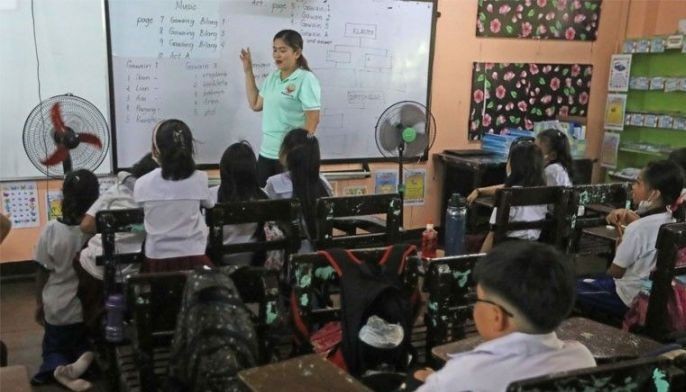MANILA, Philippines — The Department of Education (DepEd) will adopt a phased implementation of the revised Grade 1 to 10 curriculum, with the pilot implementation set in select schools starting this year.
Vice President and Education Secretary Sara Duterte led the launching of what the DepEd called the “MATATAG K-10 curriculum of the K-12 program” in Pasay City yesterday.
Among its key features is the “decongestion” of the learning competencies, including the reduction of subjects from Kinder to Grade 3 to focus on foundational skills such as oracy and numeracy.
It will also intensify values education and strengthen peace education, which will be integrated in different subjects.
“The review was an extensive and painstaking process that demanded the collaboration of education stakeholders. The review and revisions fulfill the Department of Education’s pledge to evaluate the K-12 program following its initial implementation,” Duterte said in her speech.
The new curriculum, Duterte said, was designed to improve the learning outcomes of students and help them succeed in life.
“The knowledge that we are offering our learners should be relevant and the skills being developed are applicable and responsive to the demands of a world that constantly evolves,” she added.
Fewer subjects
There will be fewer subjects or learning areas in the early grade levels of the revised curriculum.
The new Grade 1 curriculum will only have five subjects: Language, Reading and Literacy, Mathematics, Makabansa and Good Manners and Right Conduct (GMRC).
There will no longer be a separate mother tongue subject, but officials clarified that the mother tongue or the students’ first language will still be used as a mode of instruction when teaching other subjects.
The Makabansa subject – called Sibika, Kultura, Kasaysayan at Kagalingang Pangkatawan or SIKaP in the draft revised curriculum – will merge Araling Panlipunan (AP) and Music, Arts, Physical Education and Health (MAPEH) and will be taught in Grades 1 to 3.
Grade 2 students will also have five subjects, but the Language and Reading and Literacy in the previous grade level will be replaced with English and Filipino.
Grade 3 students will have six subjects with the addition of Science.
Despite the reduced number of subjects, students will still have the same number of contact hours, with the additional time used to hone their foundational skills.
Starting Grade 4, students will have eight subjects: English, Filipino, Science, Mathematics, AP, MAPEH, Technology and Livelihood Education and GMRC (which will become Values Education starting Grade 7).
According to DepEd, the new curriculum will reduce the total number of learning competencies or the concepts spread across the subjects to just 3,664 from over 11,700 in the old K-12 curriculum.
Phased implementation
Undersecretary for curriculum and training Gina Gonong said the new curriculum will be piloted in several schools in the upcoming school year that will begin later this month.
The number of pilot schools has yet to be released.
“We’re doing pilot implementation so we are more ready for the implementation next School Year 2024 to 2025. We will study the challenges that we will face so we can address the gaps and that we are ready, the teachers are ready to teach when we finally roll out in SY 2024-2025,” she said in a mix of English and Filipino.
It will be implemented first in Kindergarten and Grades 1, 4 and 7 in all public and private schools starting SY 2024-2025; Grades 2, 5 and 8 in SY 2025-2026; Grades 3, 7 and 8 in SY 2026-2027 and Grade 10 in SY 2027-2028.
“This means that by 2028, we will have fully implemented the Matatag curriculum for Kindergarten to Grade 10 of the K-12 program,” said Jocelyn Andaya, director of DepEd’s Bureau of Curriculum and Development.
For the pilot implementation, Gonong said the agency will produce in-house materials and train teachers whose classes will be selected.
Mass training of teachers for the full implementation will start next year. DepEd will also start the procurement of new textbooks and other learning materials, with a meeting set with book publishers on Aug. 11. – Marc Jayson Cayabyab


